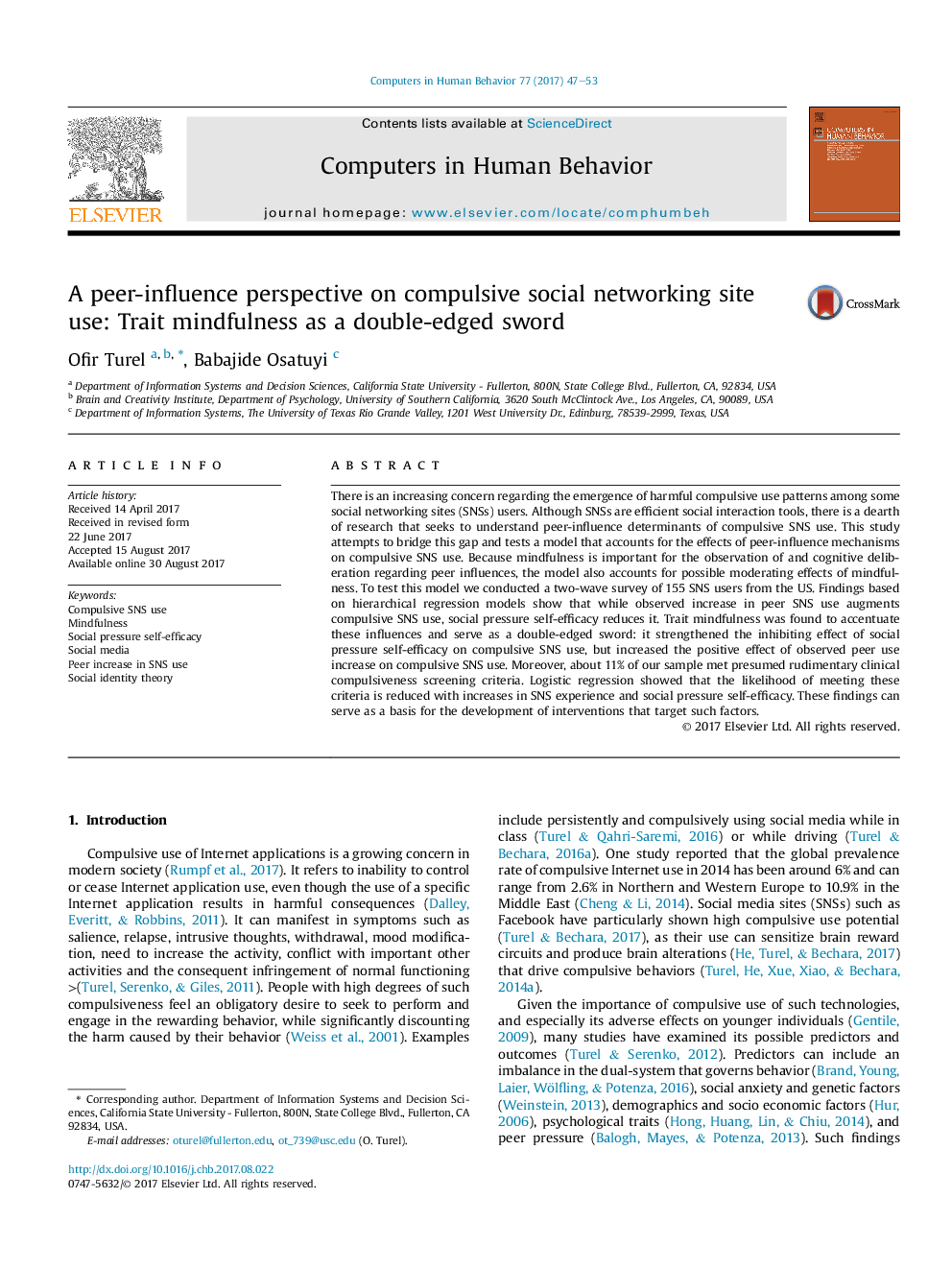ترجمه فارسی عنوان مقاله
دیدگاه نفوذ همکار در مورد استفاده از سایت شبکه اجتماعی اجباری: توجه به عقل به عنوان یک شمشیر دو طرفه
عنوان انگلیسی
A peer-influence perspective on compulsive social networking site use: Trait mindfulness as a double-edged sword
| کد مقاله | سال انتشار | تعداد صفحات مقاله انگلیسی |
|---|---|---|
| 133761 | 2017 | 7 صفحه PDF |
منبع

Publisher : Elsevier - Science Direct (الزویر - ساینس دایرکت)
Journal : Computers in Human Behavior, Volume 77, December 2017, Pages 47-53

